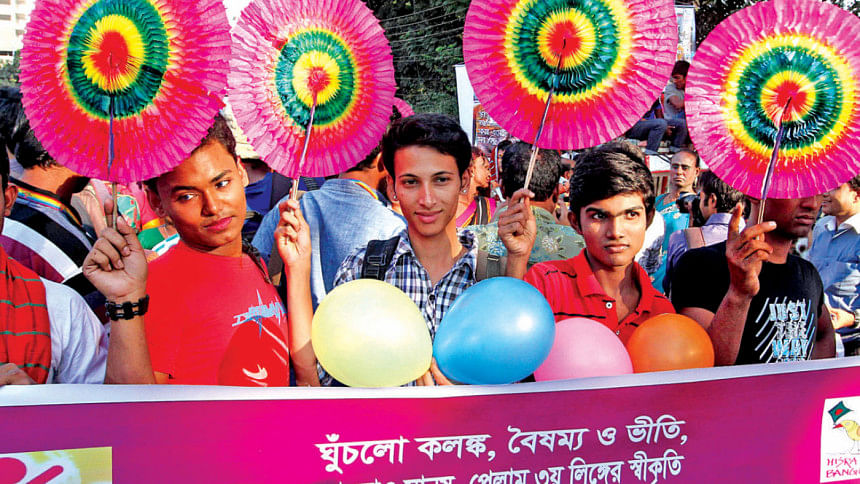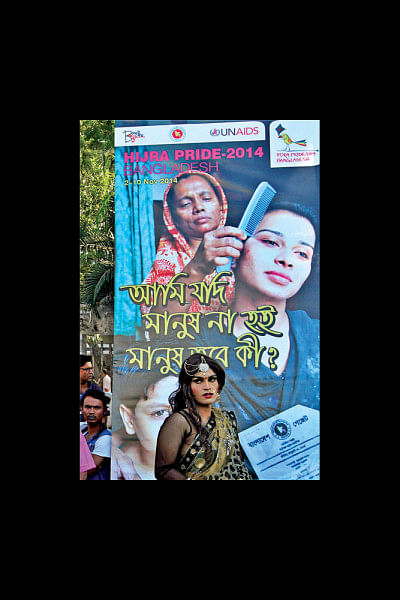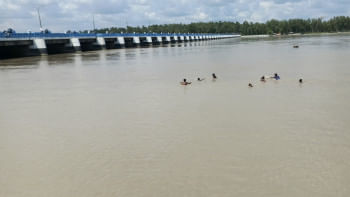The Woes of Homelessness

Photos: Anisur Rahman
Our society treats transgender people as outcasts. They are vilified as criminal groups, a threat to the social fabric, and thus undesirable to the so called 'bhadralok samaj ('the gentleman's society')'. "It is a lifelong ordeal for us to find a decent accommodation that only ends in the embrace of death," says Nishita, a transgender from Chittagong.
Nishita, a young and extrovert person, lives in a small slum of Jhautola Road. Situated at the margin of the gleaming city, a dark alleyway leads to the shanty where they live in ten by ten feet makeshift rooms. With no electricity, water supply and sanitation facility, the slum is hardly fit for human living. "We are not allowed to live in a decent place even after offering a hefty amount as if we are destined to live and die in this filth" bemoans Nishita, pointing at a stream of foul-smelling sewage running right under the slum.

Just like Nishita, transgender people in Bangladesh are born, grow up and die without any social recognition and support. Nishita's family abandoned her when they realised she is not a male child. "I was not allowed to visit my parents. But I could not resist myself at the news of my father's demise in 2011; I went there secretly in fear of the neighbours. Alas, my brothers didn't give me the chance to see his face for the last time."
Shale Ahmed; Executive Director of Bondhu Social Well Fare Society Bangladesh, an organisation working in the country to develop the conditions of transgender people says that rejection begins from the family. In most cases, transgender people are not permitted to inherit property from their parents. He also adds, "even if they buy property of their own, the sellers often dupe them and do not hand over land possession. They cannot seek arbitration as lawyers generally decline to fight their cases; and influential persons of the society exploit this social aberration to its fullest extent."
Landlords also refuse to rent out flats to transgender people as they are considered to be 'bad influence' and 'uncomfortable elements' for neighbours. Some people also think that transgender people transmit diseases just by being. There is a tendency to avoid them in the everyday life.
The government's decision to recognise transgender people as a part of the third gender is indeed a remarkable achievement. Sadly, they still remain unacceptable to the society and suffer from lack of access to proper housing facilities. The government is yet to provide a sustainable solution to this problem. Now they are recognised as equals to all the citizens of the country, but still lead the lives of nomads, shifting here and there without any permanent address. It also results in low number of transgender people in national statistics according to which the current number of transgender people in Bangladesh is only 10,000. Shale Ahmed believes the number is actually ten times higher; a large number of transgender people remain uncounted as they have to live in the darkest corners of cities.

 For all latest news, follow The Daily Star's Google News channel.
For all latest news, follow The Daily Star's Google News channel. 



Comments